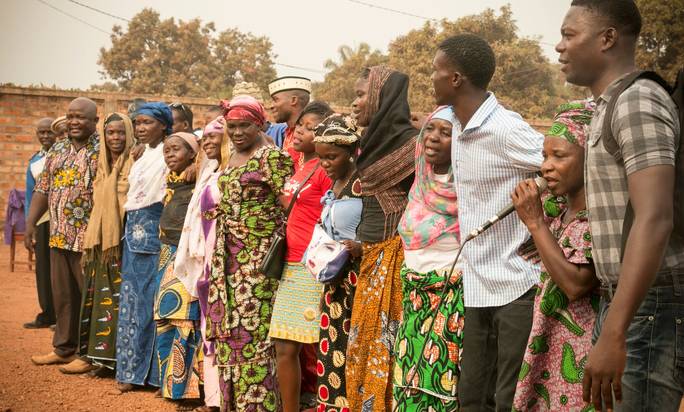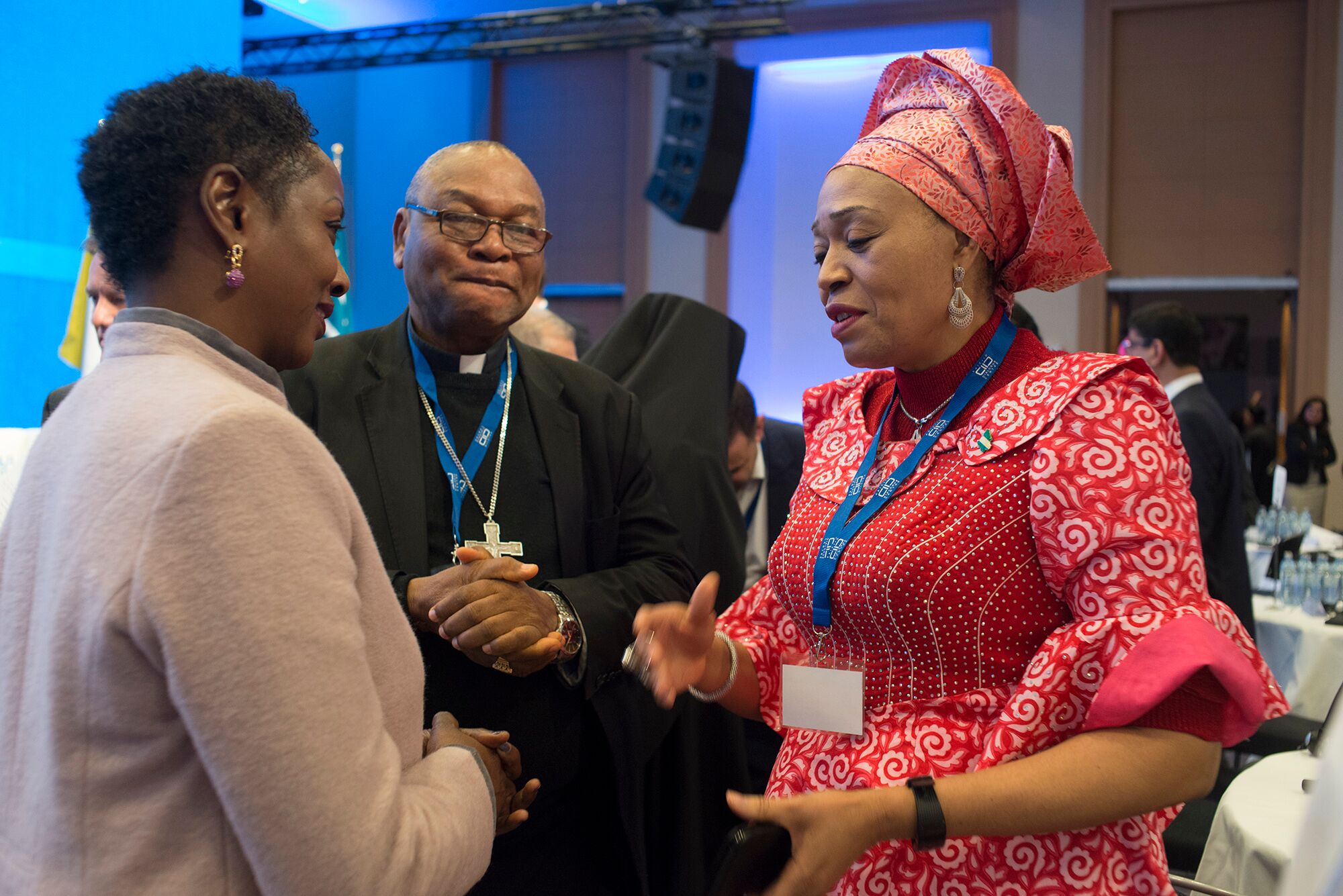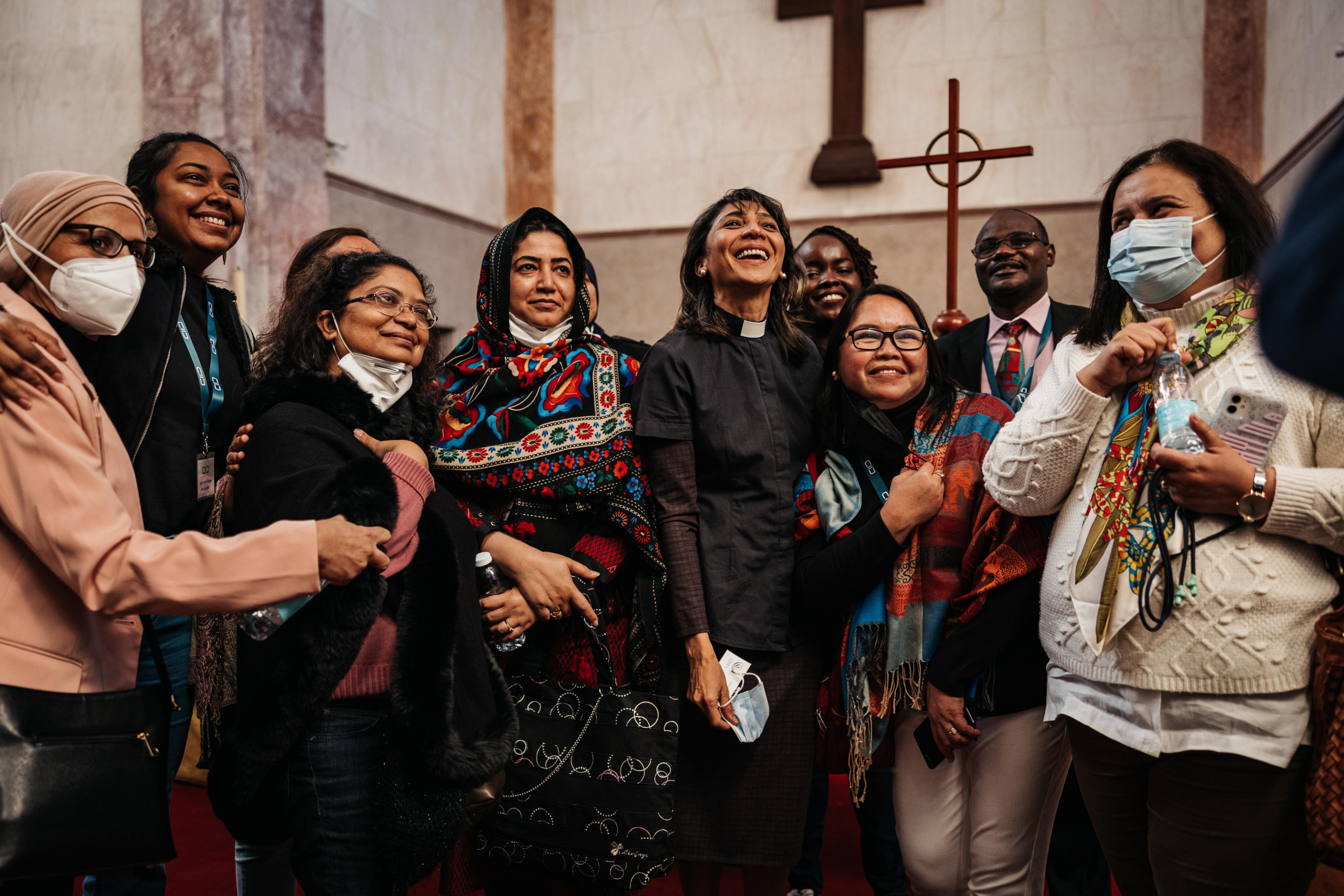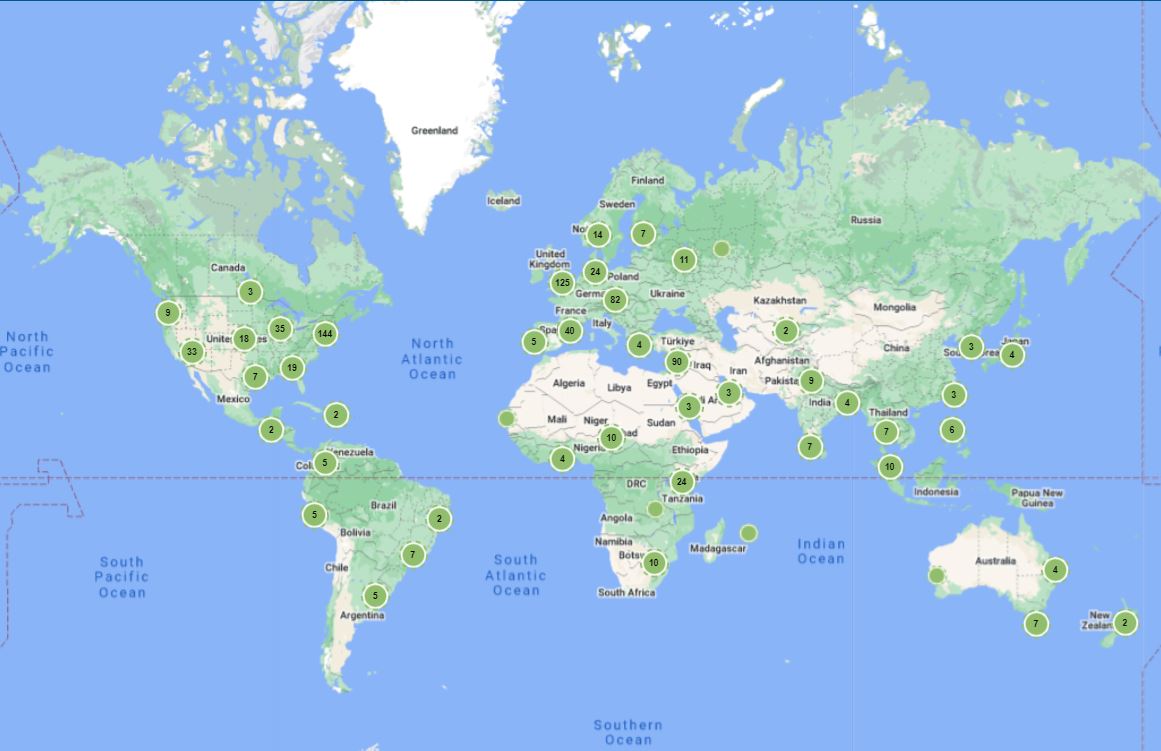Promising Practices
Promising Practices is a collation and expansion of existing documentation on promising practices in interreligious dialogue. Our database offers guidelines and focuses on the concrete implementation of interreligious and intercultural dialogue practices around the world.

Disclaimer:
Through providing different aspects and ideas our aim is to compliment the great work that has been already done in the field of Interreligious and Intercultural Dialogue. Information and field data published in this resource are for informational purposes only, and neither KAICIID nor the Dialogue Knowledge Hub guarantee in any way success of the implementation of the activity.
While we wish all the activities and initiatives featured in this resource could be replicable in as many context around the world as possible, there are often certain limitations, such as the suitability for particular cultures or religious communities. However, there is always room to explore and adjust activities in regards to the community’s environment.
- Lebanon
- New Zealand
- South Africa
- Turkey
- USA
- Capacity Building & Empowerment
- Confessional / Religious / Spiritual Activities
- Educational Programmes
- Freedom of Expression
- Freedom of Religion and Belief
- Interreligious Dialogue
- Intrareligious Dialogue
- Minority Rights
- Peace
- Pluralism
- Youth
- Christianity
- Islam
- Judaism
- Multireligious
Interreligious Course
Interreligious courses are an effective method to foster interfaith dialogue, as they educate. Different projects and pathways can be used to establish curricula and courses on interfaith coexistence, such as a national interfaith civic education. This can be formulated and organized by an interfaith organization that works closely with the education ministry of a given country to implement it. Through this unified national education curriculum, the youth are taught about understanding and accepting others’ beliefs, and that their citizenship entails a respect for all people regardless of their faith. Another project involves offering a year-long University course on interreligious issues, after which participants are awarded a diploma of interreligious affairs. The goal behind such a course is to inform students about our multi-religious world. This can be implemented in primary schools as well, through basic instructions on different belief systems and practices of their respective countries’ religions. Outside the school context, an educational activity can be conducted in parishes to bring together children of different traditions, such as Jewish and Christian faiths, on weekends to learn about the teachings of both religions. Other programmes and projects can offer a set of classes to learn about the history, development and contemporary practices of the world’s major religions. Such a program is designed for individuals seeking additional and informal education, and willing to participate in evening classes scheduled after work or university.
- Global
- Guatemala
- Lebanon
- Malaysia
- USA
- Capacity Building & Empowerment
- Confessional / Religious / Spiritual Activities
- Diplomacy
- Educational Programmes
- Freedom of Religion and Belief
- Human Security
- Humanitarian Aid
- Intercultural Dialogue
- Peace
- Shared Human Values
- Social Work & Community Service
- Women's Rights
- Youth
- Christianity
- Hinduism
- Islam
- Judaism
- Multireligious
Interfaith Volunteering
This promising practice happens in multi-religious societies throughout the whole year, and is based on a citywide network of diverse faith communities, which provides resources and temporary housing for families experiencing homelessness. Different religious communities come together to lead cooperative societal projects. They partner up with local authorities to create links between religious communities, through social work. Young people from different religions are encouraged to give their time to a communal service, or get together to cook and distribute food to homeless people, either on the streets or in community centres. Associations are actively working for the development of communities in need, seeking young volunteers from different religious backgrounds who would assist remote and isolated communities. Their goal is to challenge the traditional way of community building and development, by incorporating a social purpose into the practice. Community development has equally important economic and social effects, thus this practice assists precarious villages or neighborhoods throughout the year, and gives them a sense of community that they don’t often have because of their isolation, for
- Lebanon
- Poland
- Sri Lanka
- USA
- Capacity Building & Empowerment
- Confessional / Religious / Spiritual Activities
- Educational Programmes
- Freedom of Expression
- Freedom of Movement
- Freedom of Religion and Belief
- Intercultural Dialogue
- Interreligious Dialogue
- Intrareligious Dialogue
- Peace
- Youth
- Christianity
- Hinduism
- Islam
- Multireligious
Interfaith Theatre
The practice of interfaith theatre can be utilized in different ways to suit the context of the subject matter in question. For example, one practice called Bibliodrama invites participants to understand and discuss the main religious figures present in the holy texts of a religion other than their own. Another form of interfaith theatre brings together youths of different faiths to act together in a play based in a zone of conflict between groups of different religions. Another example is “The Hindu and the Cowboy”, which is a theatrical production created from the stories shared by the residents of Kansas City. It showcases how interfaith communities in a city do not need to be viewed as a ‘melting pot’, but rather as a mosaic, in which each faith has its own integrity and identity and contributes in their own way to the beautiful full image. Lastly, the “Theatre of the People” is a mobile theatre where people from different ethnic and religious backgrounds create and perform a play, and travel together for representations. Along with all the preparations and performances, the theatre troupe engages the masses through workshops in schools and public spaces, and promotes inclusion and reconciliation through art and theatre.
- Czech Republic
- India
- Ireland
- Lebanon
- Poland
- Russia
- Confessional / Religious / Spiritual Activities
- Diplomacy
- Freedom of Religion and Belief
- Intercultural Dialogue
- Interreligious Dialogue
- Intrareligious Dialogue
- Networking
- Peace
- Youth
- Buddhism
- Christianity
- Hinduism
- Jainism
- Judaism
- Multireligious
Interfaith Prayer
The practice of interfaith prayer is an initiative that can take place anytime, anywhere. It is especially appropriate when there is a natural disaster or tragedy affecting a community. It can also be used during times of peace. Interfaith prayers aim to emphasize the common values of the religions involved. It can also be used when and important religious leader passes away. This gives believers of different faiths the opportunity to come together in an act of solidarity and goodwill. Another form of interfaith prayer involves believers from different denominations of the same religion uniting for prayers at the same location and praying in the same language. This aims at compensating for reduced resources of religious minorities, while giving participants the opportunity to unite with people of different practices in a common prayer. An organization can also invite individuals to a gathering, where they reflect on scriptures from different religions. These workshops emphasize the similarities between religions, instead of just highlighting the differences. Interfaith prayers require a space where individuals can gather, regardless of their faith, to observe a moment of prayer, meditation, or silence, thus share a spiritual moment side by side.
- Jerusalem
- Lebanon
- South Africa
- Tunisia
- Confessional / Religious / Spiritual Activities
- Democracy
- Humanitarian Aid
- Intercultural Dialogue
- Interreligious Dialogue
- Intrareligious Dialogue
- Peace
- Physical Infrastructure
- Pluralism
- Shared Human Values
- Social Cohesion & Citizenship
- Social Work & Community Service
- Christianity
- Islam
- Judaism
- Multireligious
Interfaith Care Institution
One or more religious communities and/or organizations join forces to build a care center with the aim of treating or taking care of sick people from all different faiths, with a commitment to also foster interfaith dialogue as part of its activities and services. This promising practice can also be done as an ‘add-on’ to existing care institutions. Caring for people regardless of their religion can build relationships and strengthen interfaith relations. The action is designed for any religious organization that has the capacity to found an institution especially considering that specialists/doctors are needed.
- Lebanon
- Philippines
- Rwanda
- USA
- Capacity Building & Empowerment
- Freedom of Expression
- Freedom of Religion and Belief
- Intercultural Dialogue
- Interreligious Dialogue
- Intrareligious Dialogue
- Networking
- Pluralism
- Social Work & Community Service
- Women's Rights
- Youth
- Christianity
- Islam
- Judaism
- Multireligious
Organization of Informal Dialogue Meetings
People from different backgrounds meet each other in a fixed setting, i.e. coffee shops, at universities, schools, homes or online to engage in dialogue, usually on a regular basis. Through dialoguing, personal relationships may be built, especially through meeting in an informal setting, as this makes it easier for the participants to open up towards the other. Any individual or group with proper interest can organize such a meeting.




